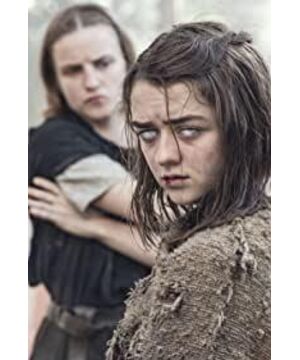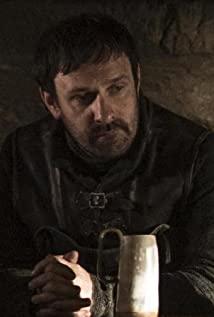(I just translated. I think it is currently in foreign media The most accurate review. I only translated some of the names)
That's about it. Game of Thrones season finale "Wind of Winter" is the best episode of the season. Maybe the best of the seasons. It's full of major plot developments (goodbye, Baelor; hello, Dany's fleet), but still makes room for some quiet moments. Tyrion, for example, moved to accept the role of Hand of the Queen. I was on a business trip last week, so I wasn't able to participate in the usual Game of Thrones discussions. But I have some thoughts on how this episode, and the sixth season as a whole, reflects how the show is going.
In the last season, viewers had a limited (particularly about the plotline in the North) sense of how different the show would be with Martin's novel content being used up. But it was really this season that the exception became the norm. While Martin long ago gave showrunners Benioff and Weiss a blueprint for the overall plot development, they can no longer rely on the source material scene by scene. Game of Thrones is now really their show. Combined with changes in pacing, character development, and plot simplicity, this series is unlike anything we've seen from seasons 1 to 4. It got worse, but it got better.
Let's talk about where it went bad. While earlier Game of Thrones had all the hallmarks of epic with swords and magic (knights in armor, mysterious priestesses, spooky zombies), it was thematically closer to a political/spy thriller, Johh Le Carre That kind (author of "The Night Manager" and "Tinker, Tailor, Soldier, Spy"), just adds a dragon.
The poor character Robb Stark got it right in season three, "I win every battle, and I lose this one." with his son Robb, Robert Baratheon and his brother Stannis). What remains now are not noble knights, but cunning mercenaries (Bronn, Daario Naharis) or the immortal Clegane brothers.
Right from the start, it's all conspirators: Tywin, Tyrion, Cersei (though she's not as good at the game as she thought she was), Varys, Queen of Thorns, Margaery, and of course, Littlefinger. Basically the Westeros we know were created by Littlefinger. He planted the seeds of the War of the Five Kings by murdering Jon Arryn and convincing the Stark family that the Lannisters were behind it. It was also Littlefinger and the Queen of Thorns who planned the murder at the Purple Wedding (with the Red Wedding, of course, during which Tywin defeated the Stark family and the Army of the North)
but what did these plots accomplish in the first two seasons? Basically nothing. Tyrion's main achievement was an unsuccessful attempt to establish a peace treaty with the slave city. (Yes, he also persuaded Dany to leave Daario behind, but that's not really a "plot" at all). Varys runs to Dorne to broker an alliance between the Queen of Thorns and Ellaria Sand. Margaery and High Sparrow allied, and the results were disastrous.
As for Littlefinger, the former master of lies is no longer himself. His main duty this past season has been to marry Sansa to Ramsay Bolton (though he has absolutely no idea that the eldest brother is the most famous sadist in the Seven Kingdoms). This season, he does charm the naive Robin Arryn with a pet falcon, but has to convince the kid to fuck Lysa to kill her husband and marry her, making herself Lord of the Vale (and throwing her to death afterward) The ratio is simply too trivial. Yes, he also went to Winterfell to rescue Jon Snow's army, and it is estimated that this rescue will be used as a bargaining chip in the future. But for now, his actions are mostly driven by Sansa's beckoning, rather than some elaborate planning. Littlefinger has never been so "small".
Cersei (finally!) brings us a satisfying and dramatic conspiracy in the season finale. It's a great moment, despite all the hints you've been given before. But the excitement it brings is a reminder that moments like these are becoming rarer.
Of course, the show still had a few shocking moments this season. But these moments are generally wayward (Ramsay stabs Daddy to death), convenient and timely (Danny and her dragon return to Meereen), simple (although cool, Cersei's use of wildfire isn't terribly complicated), or simply unexplained. I'm enjoying Arya's revenge against Walder Frey, for example, but for no reason at all. When and where did Arya come back to Westeros? How did she sneak into Frey's house, kill their two sons, and run into the kitchen to make them a cake? Where did she get her new face? (Very exaggerated setting. She can do all of the above with her real face. This "Mission Impossible"-like face stripping is not for Walder, but for us)
and a lot of this season Similar to the events of last season, Frey's murder appears to be a completely unplanned climax. Contrast this with the well-crafted moments of the past, like the Purple Wedding, which introduced the goofy figure of Ser Dontos and the poison necklace he gave Sansa long before it happened. After comparing, you will find that the difference is really big.
Martin's novels are always careful about the motivations of their characters, which is another saving grace of the show. We still don't know what Littlefinger was thinking when he married Sansa to Ramsay, and it looks like we'll never know (how does that take him away from his vision of "imagine me on the Iron Throne and you're by my side" Closer?) After rescuing Jon's army in Vale's Cavalry Episode IX, there's been a lot of discussion online about why Sansa didn't tell Jon that reinforcements were already on their way. Then the answer given in the season finale is basically not an answer: "I should have told you about the Vale Trooper and Littlefinger in advance. Sorry." It was my fault! I must have accidentally forgotten.
The laws on inheritance also became less strict. I don't have a problem with Cersei taking the Iron Throne, as there are basically no living candidates in King's Landing. But don't forget that she was on the throne because he killed hundreds of people (including queens and church chiefs, while destroying the most sacred building in the city). Of course, it would be better if it could reflect the public's concern or commotion about her behavior. Several other inheritance also have many problems. When Ramsay killed his dad (in front of witnesses) and fed his stepmother and little brother to the dogs, how could anyone accept him as Lord of the Dreadfort, let alone Lord of Winterfell and Warden of the North? Other than that, although I know Dorne likes to go on the beat of her own drum, having a bastard lover of a dead prince brutally murder the rightful ruler of the place, and make her end up being the leader of the place, really It's too accommodating. Why not execute her?
Of course, Dorne was a mess from the start. The season finale underscores the difficulty the show has had with pacing without Martin. Ellaria clearly wants Dorne to fight King's Landing, which makes sense. But that's supposed to happen at the beginning of the season: Oberyn died in season four. Since Cersei knew that his daughter was poisoned, both sides should have the idea of war. It's a simple rule: kill the king's sister and start a war.
There are other spooky time lapses in the season finale. When Ser Davos (finally!) finds out what happened to his favorite princess, Shireen, he confronts Melisandre. This should also have happened five or six episodes ago, preferably right after the red lady rebooted Jon. I'm probably dragging this up so late to make the last episode a little more explosive.
At the same time, some other plots are moving too fast. The Sparrows took over King's Landing in a two-minute montage last season. The result is that their rule in the capital simply doesn't make sense. Similarly, Stannis' moral downfall and eventual debility could have developed over several episodes into a heart-wrenching plot point, but was so shortened that it nearly drew the audience's ire.
At the same time, there is also a problem with distance. Can anyone explain to me why it took Varys only one episode to run from Slaver's Bay (crossed out) the Bay of Dragons to Dorne and back again, while it took Sam four episodes to complete the journey from Horn Hill to Oldtown Take a short trip? Yes, Game of Thrones writer/producer Bryan Cogman has explained it on Twitter, saying "It's to avoid, say, Arya spending four episodes on the boat." But this kind of question could be used elsewhere Ways to fix it, like having Varys go to Dorne a few episodes earlier, without resorting to pointless time compression.
Having said all this, I just wanted to say that over the past two seasons, Game of Thrones has become a very different show than the previous four seasons: increasingly careless in terms of plot and motivation, reliant on the main plot progression but Not enough foreshadowing or explanation, leaning towards dramatic shock rather than inner logic, etc.
But it is also almost unavoidable. Why does Game of Thrones feel like it's made up of important plot twists these days without enough detail to fill it in accurately? Because it is such a show. For the first four+ seasons of the show, Benioff and Weiss could choose the best of Martin's extensive plot, scenes, and dialogue. Now all they have left is the original blueprint. So unsurprisingly, the change shows up.
Also, whether Game of Thrones is as good as it used to be is not a question we should be asking. A better question is, "Is the show better than the material Martin provided?" The answer to that question is less clear, at least until Martin finishes his masterpiece, if he does. if. This writer's fourth novel, and especially the fifth, is a mess. Often brings out a handful of new characters (often boring) and sends them on long journeys across Westeros and Essos, aimlessly and endlessly, as if they wanted to map Google Maps of two continents, one city and one street go. Even if Benioff and Weiss were still working from Martin's original text, they would probably have to change a lot. Didn't they change a lot from last season?
So instead of putting up with Martin's aimless wandering, we got the reckless momentum of Benioff and Weiss. No matter how much you pick on this season (I've obviously picked up a lot), it's going, and it's going faster than any other season. After Martin wrote five books, the ending was getting further and further away. But Benioff and Weiss are on their way to the finish line. There are only two seasons left, much shorter than originally planned. (I need to point out that they must have missed out on millions of dollars by not expanding the series on purpose, this restraint needs to be affirmed)
That's why, in my mind, "Wind of Winter" is not only extremely exciting A satisfying episode, and a Game of Thrones paradigm: exciting, lively, and marching toward its final climax with a determination. This means that there are expected to be shrinking plots and occasional logical confusion in the future, but so what. If you weren't shocked when Tommen jumped out of the window, or moved when Dany made Tyrion her prime minister, or thrilled to see her (finally!) lead a fleet to Westeros, you'd be better off I'm still harsh.
Game of Thrones may be a different show now, and not as rich as it used to be, but it has a sense of urgency that the book (and previous seasons) lacked. Frankly, I haven't been so looking forward to the next season in years.
(Although I am not the author of the original text, the translation is also time-consuming. If you want to transfer it, please indicate it)
http://cn.hansonhe.com/GoT-s6
View more about The Red Woman reviews











